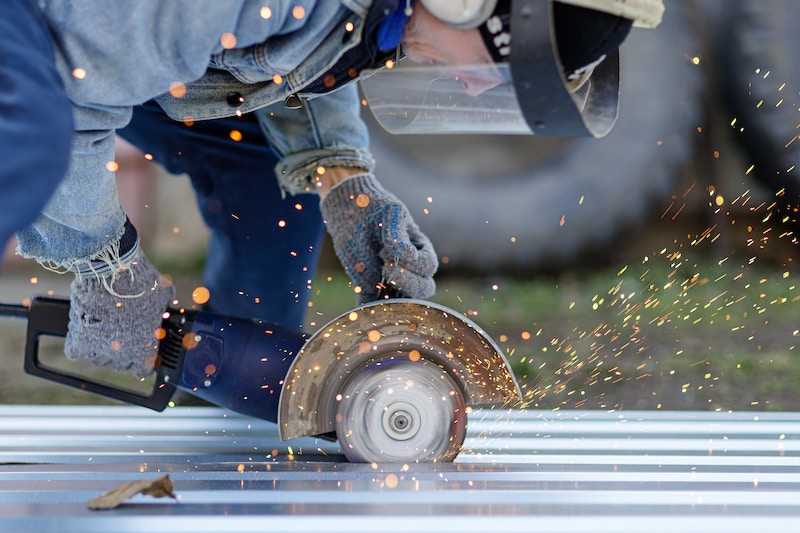Navigating the Dangers of Abrasive Wheels: Essential Safety Training for Irish Workers
Abrasive wheels are integral tools used in various industries for grinding and cutting materials. However, they come with significant risks that can lead to serious workplace injuries. Understanding these dangers, implementing safety measures, and obtaining an Abrasive Wheels Certificate are critical steps in ensuring a safer working environment.
Common Workplace Hazards Associated with Abrasive Wheels
Working with abrasive wheels can expose employees to several hazards:
- Wheel Breakage: The most catastrophic risk, where a wheel shatters during use, can lead to flying debris that may injure operators or bystanders.
- Improper Mounting: Incorrectly mounted wheels can vibrate or break during operation, risking injury.
- Excessive Speed: Operating at speeds beyond the manufacturer’s specifications can cause wheels to overheat and fail.
- Lack of PPE: Failure to use appropriate personal protective equipment, such as goggles, gloves, and face shields, increases the risk of injuries from debris and sparks.
- Inadequate Training: Workers who lack training may misuse equipment, leading to accidents.
Common Injuries Resulting from Abrasive Wheel Usage
Unfortunately, accidents do happen, and the resulting injuries can be severe:
- Lacerations and Cuts: Sharp edges and flying debris can cause cuts and lacerations.
- Eye Injuries: Sparks and particles can lead to serious eye injuries if proper eye protection is not worn.
- Burns: Increased friction and heat can cause burns to the skin.
- Hand and Finger Injuries: Getting hands too close to the wheel can result in crush injuries.
- Hearing Loss: Prolonged exposure to loud noise during operation can impact hearing.
Mitigating Risks: Best Practices for Safety
Employers and employees can take proactive steps to mitigate risks associated with abrasive wheels:
- Implementing Proper Training: Ensure that all operators complete a certified Abrasive Wheels Course in Ireland, which covers safe operating procedures.
- Regular Equipment Inspection: Conduct routine checks on wheels, ensuring they are in good condition and correctly mounted.
- Wearing Personal Protective Equipment: Make it mandatory for all operators to wear appropriate PPE at all times.
- Following Manufacturer Guidelines: Adhere to the guidelines provided by the manufacturer regarding the use of abrasive wheels.
- Conducting Risk Assessments: Carry out regular risk assessments to identify any potential hazards and rectify them promptly.
The Importance of Abrasive Wheels Certification
Acquiring an Abrasive Wheels Certificate is not just a legal requirement; it significantly enhances workplace safety and improves career opportunities. Certification courses, such as those offered in Dublin, Cork, Galway, Limerick, and Waterford, provide workers with:
- Enhanced Knowledge: Understanding of best practices and the latest safety regulations.
- Improved Job Prospects: Certification makes individuals more attractive to employers.
- Compliance with Safety Regulations: Helps organizations meet legal safety requirements and avoid potential fines.
Real-World Case Studies of Preventable Accidents
Analyzing past incidents can provide valuable insights:
- A worker in Galway suffered severe eye injuries when operating a grinding machine without protective goggles. With proper training and PPE, this incident could have been avoided.
- In a factory in Limerick, a wheel broke due to improper mounting, resulting in lacerations. Regular inspections could have prevented this accident.
Conclusion
Working safely with abrasive wheels is vital for protecting workers in industries across Ireland. The combination of proper training, safety equipment, and rigorous risk assessments can significantly reduce the number of workplace accidents. Employers and workers alike should prioritize obtaining their Abrasive Wheels Certification to enhance not only safety but also career prospects. To learn more about our certified Abrasive Wheels Course in Dublin, Cork, Galway, and Limerick, contact us at [email protected].



 349,500 Offered Certificates
349,500 Offered Certificates
 24/7 Online Training
24/7 Online Training
 Money Back Guarantee
Money Back Guarantee
 Fully Accredited Courses
Fully Accredited Courses
